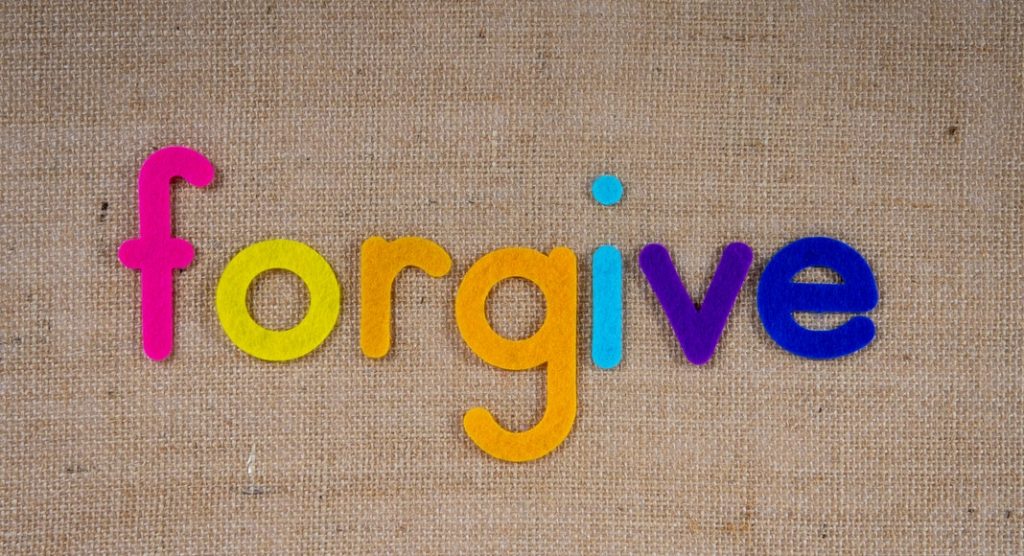 From getting hit with a ball to being insulted or even bullied, kids have no shortage of reasons to get angry. Like adults, their knee-jerk reaction when bad things happen is often to get back at them―that is, seek revenge. Did a classmate call you a name? You’ll name-call right back. If your sister took your favorite pair of shoes, you’ll steal her favorite dress. Even if somebody does something by accident, you still think of ways to “get back” at them.
From getting hit with a ball to being insulted or even bullied, kids have no shortage of reasons to get angry. Like adults, their knee-jerk reaction when bad things happen is often to get back at them―that is, seek revenge. Did a classmate call you a name? You’ll name-call right back. If your sister took your favorite pair of shoes, you’ll steal her favorite dress. Even if somebody does something by accident, you still think of ways to “get back” at them.
Though revenge can bring momentary satisfaction, it’s not healthy. Anger still simmers for days, resentment builds and so does bitterness―both between the people involved, and within each of us individually.
I have experienced this first hand. Several years ago, a surgeon I trusted made a grave mistake: I had a tumor on one adrenal gland, and he removed the wrong gland. I must now contend with a lifetime of medical issues. My friends’ and family’s immediate reaction was: let’s seek revenge. At first I agreed. But soon I realized that this thought brought me no comfort. On the contrary: the idea of devoting my precious energy to pursuing the negative force of revenge made me feel even more bitter and exhausted. This would not mend my broken body or soul.
So I chose instead to embark on a quest for peace and healing—beginning by seeking space in my heart to forgive. I write about this in my memoir On the Way to Casa Lotus. True forgiveness, I have learned, heals us. It brings us back to peace and joy.
This is a lesson I’m committed to teaching my own three children. It’s not always easy, because when somebody wrongs us we feel hurt and angry. Here are some of the ways I help my kids learn to forgive:
Explain that forgiveness is a muscle.
Like all muscles, it needs to be built and it takes work to keep it in shape. Show your kids some of the muscles on your body as an example and practice simple exercises like sit-ups or push-ups with them so they can feel those muscles getting stronger bit by bit. Tell them that forgiveness is the same: nobody gets it right immediately, but the more you work the muscle, the easier it will get.
Remind them that everyone’s human, and we all make mistakes.
Tell them about mistakes you have made. You are very human to them, after all! Tell them that the important thing is to believe that the person who made the mistake is still capable of good and can still learn and try to do better next time―just like you have.
Invite them to put themselves in the other person’s shoes.
Walk them through what the other person might be feeling, and explain that the other person might also be angry and hurt. Maybe they even feel shame or regret. Consider the person’s circumstances: were they having a bad day? Do they have a stressful situation at home? This will help kids develop empathy and gain perspective―which builds the forgiveness muscle, too.
Reassure them that nobody dies from emotional pain.
Acknowledge that yes, being wronged hurts, but that our emotions are very good at healing. In fact, it’s healthy to experience all emotional pain, including the kind that occurs when somebody wrongs you. It makes us stronger and more resilient. Let them know that being in touch with these feelings and talking about them helps.
Teach them that love multiplies. It does not divide.
Hug them, kiss them and say that in the end, it’s all about love. Like love, forgiveness brings people together and makes the world a better place. Isn’t that the kind of world they want?
Art collector and philanthropist Lorena Junco Margain is the author of On the Way to Casa Lotus, a memoir about her journey coming to terms with the permanent consequences of a surgeon’s devastating mistake. After studying visual arts at Universidad de Monterrey, she co-founded the Distrito14 gallery in Monterrey. She also co-founded and curated, with her husband, the Margain-Junco Collection to promote awareness of Mexican art internationally. She lives in Austin, Texas with her family.















